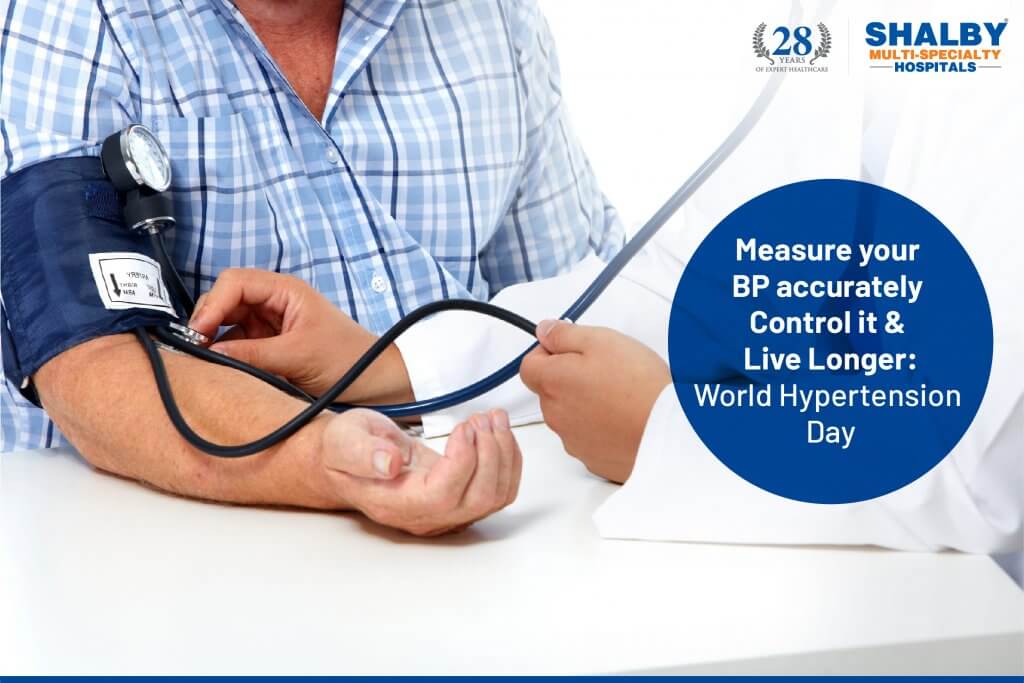
May 17 is observed as World Hypertension Day and we would like to spread some basic awareness about it.
1 in 4 adults worldwide have high BP
So what is normal BP and what is considered High BP?
Normal: < 120/80 mm of Hg
Elevated: >120-129/ 80 mm of Hg
Stage 1: >130-139/80-89 mm of Hg
Stage 2: > 140/90 mm of Hg
White Coat Hypertension: High BP at the hospital but normal at home
Masked Hypertension: Normal BP at the hospital but high at home.
1. Sudden high BP may cause
2. Sever high BP may cause:
If BP is not treated properly, a long time BP can cause:
High BP is a silent killer, every person should get their blood pressure checked, and if it’s high they should go for proper treatment as per the doctor’s advice.
Regular health check-ups and visits to your physician will prevent life-threatening complications of High Blood pressure.
Always remember “Prevention is better than cure”
Proper BP control will prevent you from life-threatening complications and help you avoid damaging your heart, kidney, and brain.
Stay Healthy, Stay Safe.
Dr. Falguni Iyer
MD Medicine, AFIH
Infectious diseases are the health disorders that are caused by infection causing organisms that use human body for surviving, reproducing and colonizing. These organisms are known as pathogens. The commonly known pathogens include virus, bacteria, fungi or parasites. Some of the infectious...
PREFACE Accidents are the main cause of injury and even death in children. People only relate accidents to the traffic accident or accidents in outdoor activities. However, as a matter of fact, the place where people regard as the safest place –...